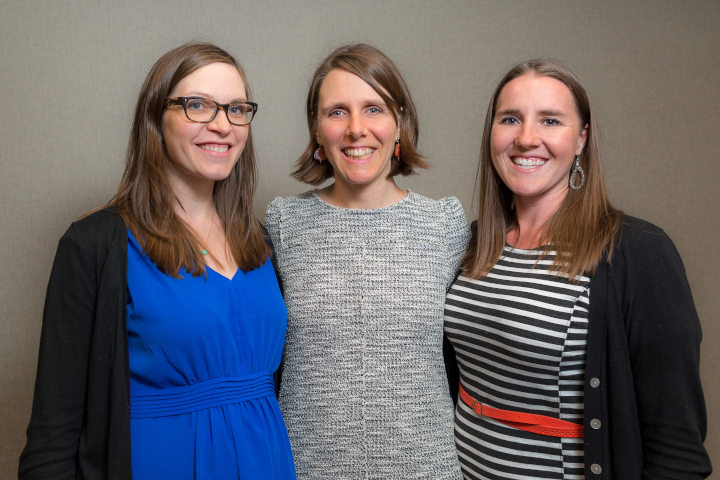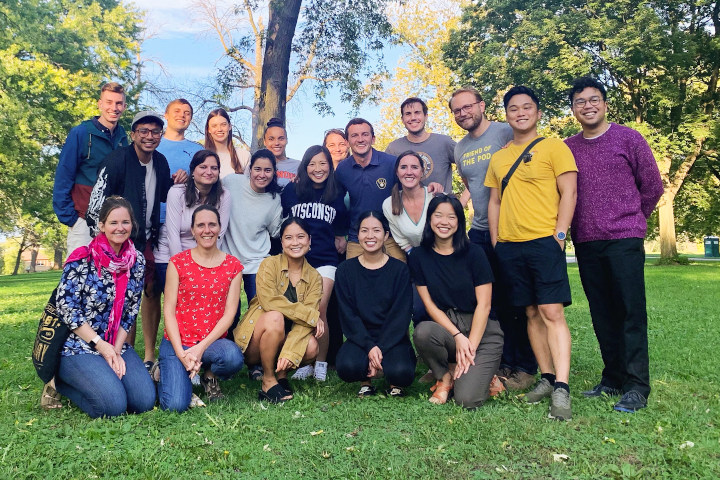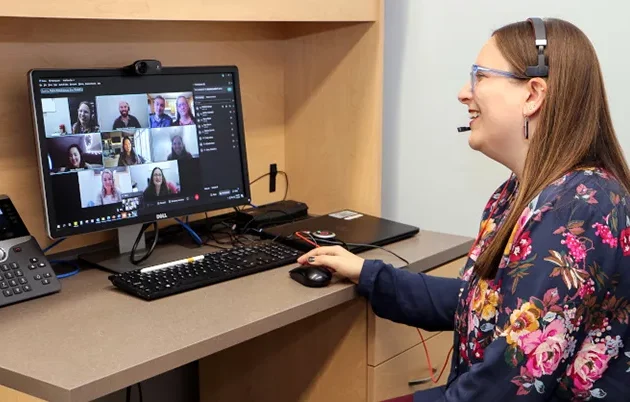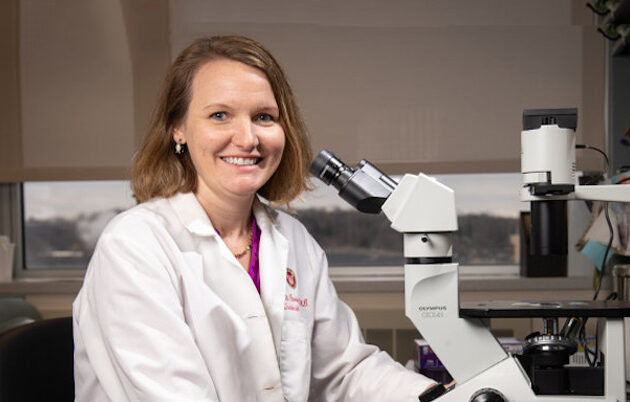Today, the program has expanded to enroll 16 students per year. TRIUMPH students begin medical school in Madison and then spend two and a half years in Milwaukee. With more than 50 partners for internships and hands-on experiences, TRIUMPH also has multiple teaching sites within Advocate Aurora Health and additional sites at federally qualified health centers and neighborhood-based clinics.
In line with program goals, 99 percent of TRIUMPH graduates have selected residencies in urban areas, and more than half practice in primary care.
“Many TRIUMPH alumni now practice in the clinics, hospitals and federally qualified health centers in which they trained, so they are offering medical care with a community-informed lens—and humility,” notes Knox. “Every day, they apply TRIUMPH skills, most importantly to listen, build relationships and connect with the community.”
These skills proved beneficial for Yang as she transitioned into TRIUMPH in her second year of medical school. In Milwaukee, her clinic training days began at 7 a.m. with a review of the day’s schedule and patient charts. And with those patients came the first of many lessons.
“When you read a patient’s chart, you sometimes have a preconceived notion of who they are — there’s a whole list of medical conditions that patients have — and I remember thinking ‘How is this patient still up and moving around?’ But then I would walk into the exam room, and the patient would be super alert and happy and look nothing like what I had pictured based just on what’s in their chart,” she recalls. “That would surprise me every single time. It was a reminder that I can’t judge my patients based only on what’s in the record. My patients are so much more than that.”
Being of Hmong descent, Yang thought Milwaukee, with its large Hmong population, would be a good choice for her career. Her primary contact with Hmong patients came during her inpatient rotations, when she could use her cultural knowledge to help patients and providers navigate cultural nuances to improve communication.
“When I’d walk in the room and the patients would realize I was Hmong, there was often a change in their demeanor. I could tell they were thinking, ‘Oh, you know me,’” she shares. “I’ve had many of those experiences.”
As the acronym “TRIUMPH” reflects, the program emphasizes both medical care and public health—specifically how to understand and act on social determinants—such as education, housing and nutrition—that powerfully affect health.
These factors are often the focus of the required student projects. For her pandemic-adapted project, Yang analyzed data on the number of purchasers using the Milwaukee Market Match, including how often they purchased items and their home ZIP code, and she put together a final report that allowed people to visualize the data.
In the match’s first pilot of 10 weeks, Yang found that nearly 800 households used matching funds for a total of $19,653. Most purchasers bought their produce at the Fondy Farmers Market in the Lindsay Heights neighborhood, but more than 30 Milwaukee ZIP codes were represented. By the end of the second pilot, participation had ballooned to nearly 1,700 households purchasing four times the dollar value of the previous year.
As the 2022 season approached, Meg Kilkenny — the healthy communities coordinator for UW Extension Milwaukee County and the co-facilitator for the Milwaukee Farmers Market Coalition with Fondy Food Center — was hearing from many former customers who wanted to use the Market Match again.
About Yang’s two-year TRIUMPH project, Kilkenny comments, “She went above and beyond all of our expectations for examining data and providing a thorough and visual, aesthetically pleasing analysis of our programmatic impacts. The Milwaukee Farmers Market Coalition has been actively using KaHoua’s work to illustrate the geographic reach of this program alongside its positive impacts on improving the health and well-being of thousands of low-income Milwaukeeans by increasing access to healthy, affordable food.”
Kilkenny continues, “Her work [has made] it possible for us to show the county and other decision makers how this program works and how important it is for the community. She did such an amazing job, especially with the 2021 program analysis, which she completed while being a new mom. Her TRIUMPH assignment will have positive ripple effects possibly for years to come.”
Using Yang’s data, Fondy Food Center and other partners went to the Milwaukee County Board to request a $1 million grant from the county’s American Rescue Plan funding. In late May 2022, the board voted unanimously to award the Milwaukee Market Match $1.1 million to sustain the program through 2024. Milwaukee County Executive David Crowley called the program “another step forward in our journey to bridge the gap in health disparities” in the county.
As Yang prepares to start a family medicine residency in northern Illinois, she says she feels proud of the outcomes of her TRIUMPH project and grateful that it could succeed at an uncertain time.
“Our TRIUMPH directors have been phenomenal, especially during the pandemic,” Yang reflects. “They helped ground us [students] and keep us informed and feeling safe. I sing their praises often.”
Knox concludes, “Our students like Dr. Yang are an inspiration to me and to the broad TRIUMPH community in Milwaukee. They have demonstrated exceptional flexibility and resilience, and they were a source of energy and support for each other and for their teams throughout the pandemic. I am profoundly excited for the impact that Dr. Yang and her colleagues will have in their communities throughout their careers.”




